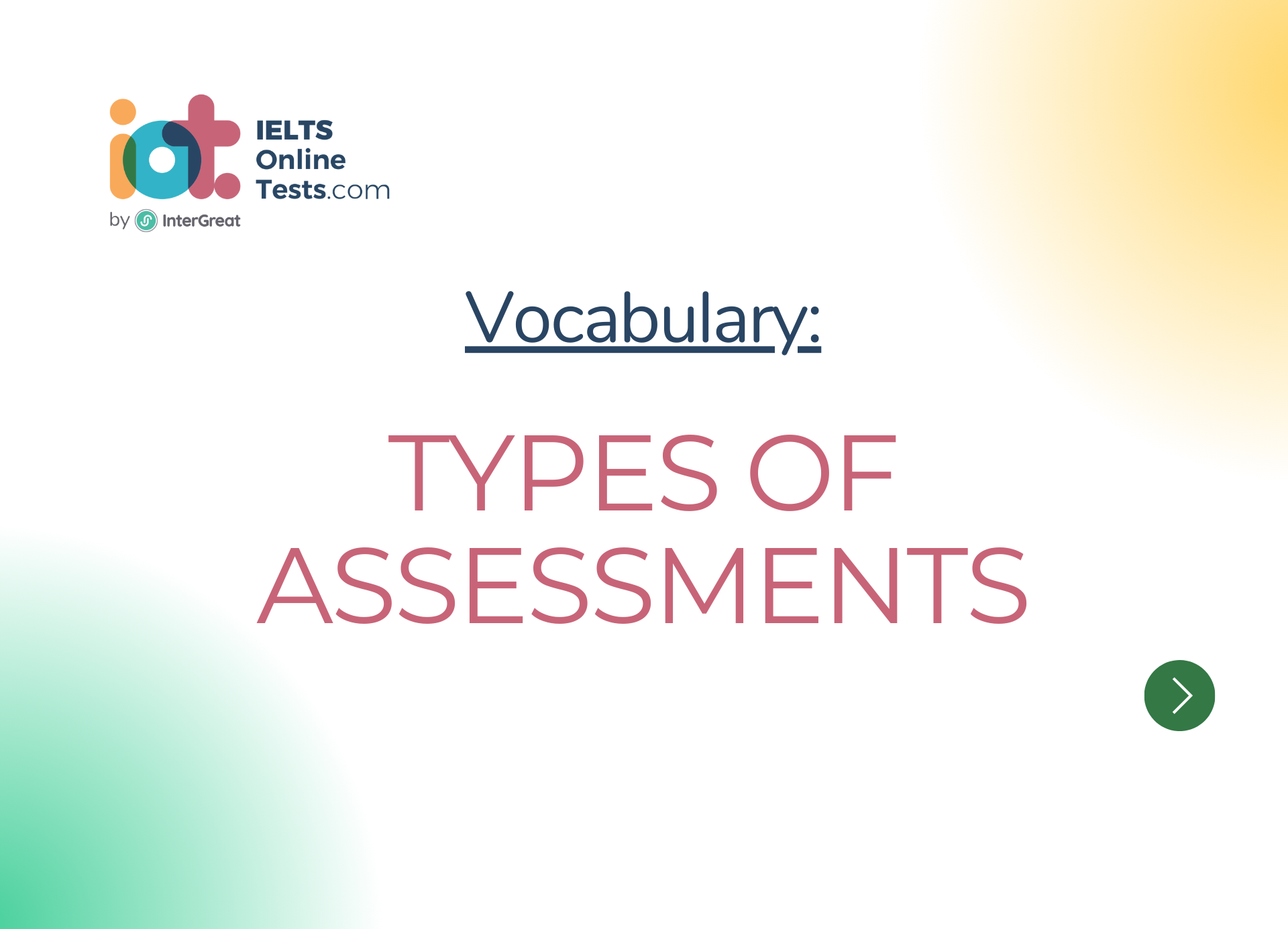
Types of assessments
Here's a lesson on vocabulary related to "Types of Assessments" for the IELTS band score 3.0-4.5:
I. Exams:
Multiple Choice: A type of exam question where you choose the correct answer from a list of options.
True/False: A type of exam question where you determine whether a statement is true or false.
Essay: A written response that requires you to present and support your ideas on a specific topic.
Short Answer: A question that requires a brief written response, usually one or two sentences.
Open Book: An exam where you are allowed to refer to textbooks or other reference materials.
II. Quizzes:
Vocabulary Quiz: A short assessment to test your knowledge of specific words and their meanings.
Grammar Quiz: An assessment that focuses on your understanding of grammar rules and usage.
Listening Quiz: An assessment where you listen to audio recordings and answer questions about them.
Reading Quiz: An assessment that tests your comprehension of written passages and texts.
Spelling Quiz: A test of your ability to spell words correctly.
III. Projects:
Group Project: A collaborative assignment that requires working with other students to complete a task.
Research Project: A task that involves investigating a specific topic and presenting findings.
Presentation: Delivering information to an audience using visual aids, such as slides or posters.
Creative Project: A task that allows you to express your ideas and knowledge in a unique and imaginative way.
Science Fair Project: A hands-on experiment or investigation related to scientific concepts.
IV. Oral Assessments:
Speaking Test: An evaluation of your ability to communicate effectively in spoken English.
Interview: A conversation where you are asked questions to assess your knowledge or suitability for a particular role.
Group Discussion: A structured conversation among multiple participants on a given topic.
Presentation: Speaking in front of others to deliver information or persuade an audience.
Role Play: Acting out a scenario or situation to demonstrate language skills and problem-solving abilities.
V. Continuous Assessment:
Homework: Assignments given to be completed outside of class time and evaluated by the teacher.
Class Participation: Active engagement in classroom activities and discussions.
Projects: Ongoing tasks or assignments that are evaluated throughout a course or semester.
Assignments: Various tasks or exercises given to assess your understanding of course materials.
Portfolios: A collection of your work and achievements that demonstrate your progress and skills.
VI. Practical Assessments:
Lab Experiments: Hands-on experiments conducted in a laboratory setting to test scientific concepts.
Field Work: Research or data collection conducted outside of a traditional classroom or lab environment.
Simulations: Virtual or computer-based activities that replicate real-world scenarios for learning and assessment.
Demonstrations: Presentations or performances to showcase your understanding of a specific skill or concept.
Artistic Performance: Evaluating your creative abilities in areas such as music, dance, or visual arts.
VII. Diagnostic Assessments:
Pre-tests: Assessments administered before a course or unit to determine prior knowledge or areas of weakness.
Placement Tests: Assessments used to determine the appropriate level or class for a student's skills and abilities.
Diagnostic Exams: Assessments designed to identify specific areas of strength and weakness in a subject.
Needs Assessments: Evaluating the specific learning needs of individual students or a group of learners.
Progress Assessments: Monitoring and measuring a student's growth and development over time.
Remember to practice using these vocabulary words in sentences and conversations to improve your understanding and fluency in English.




